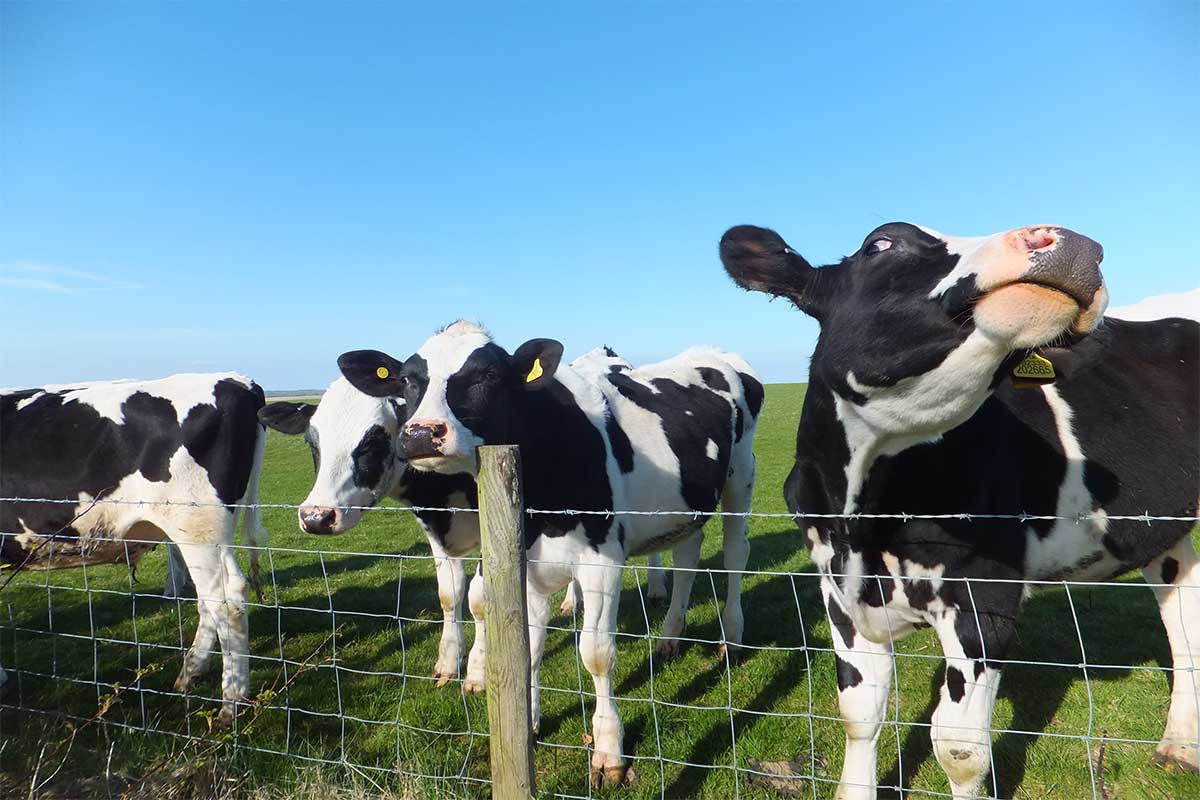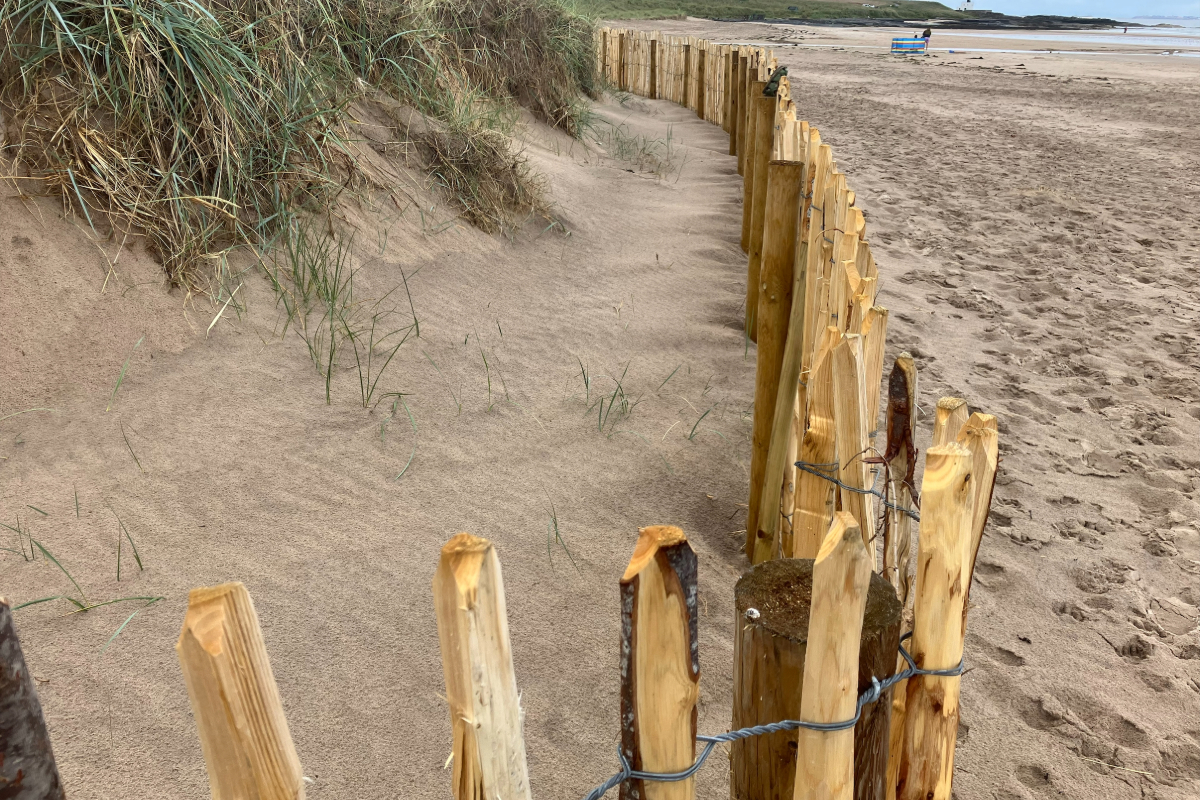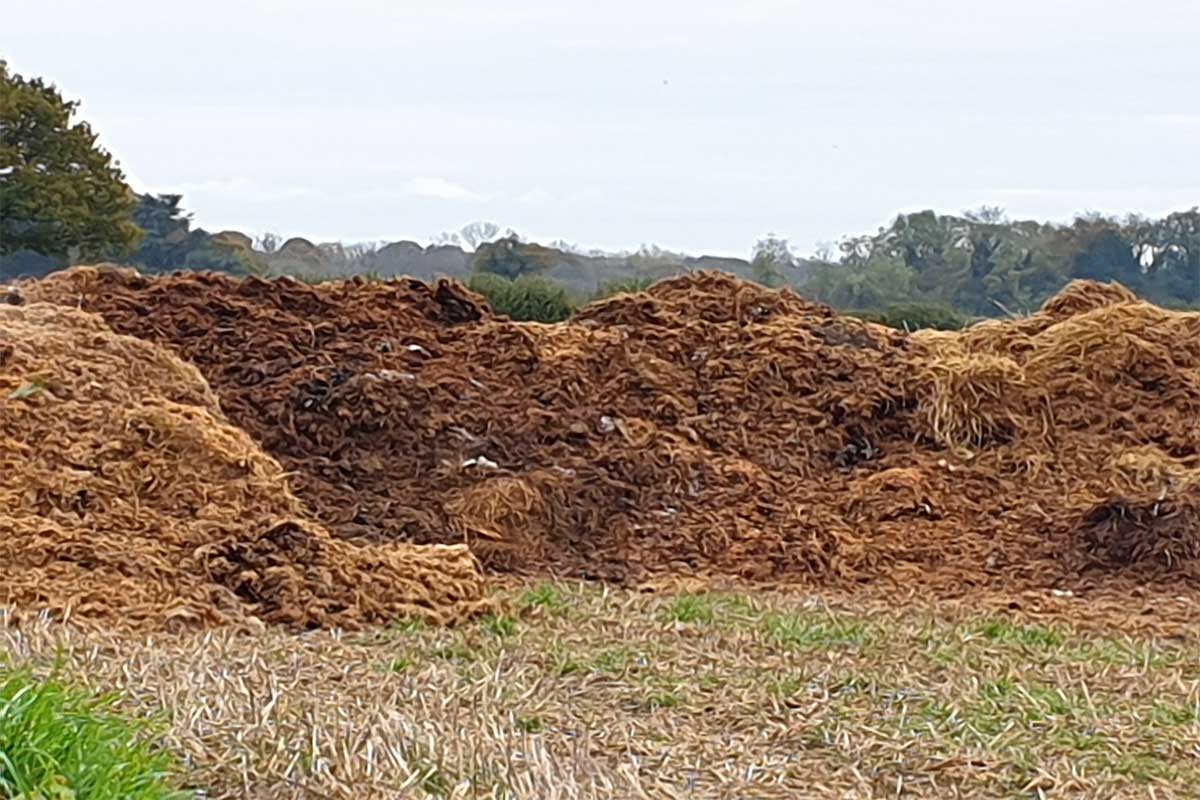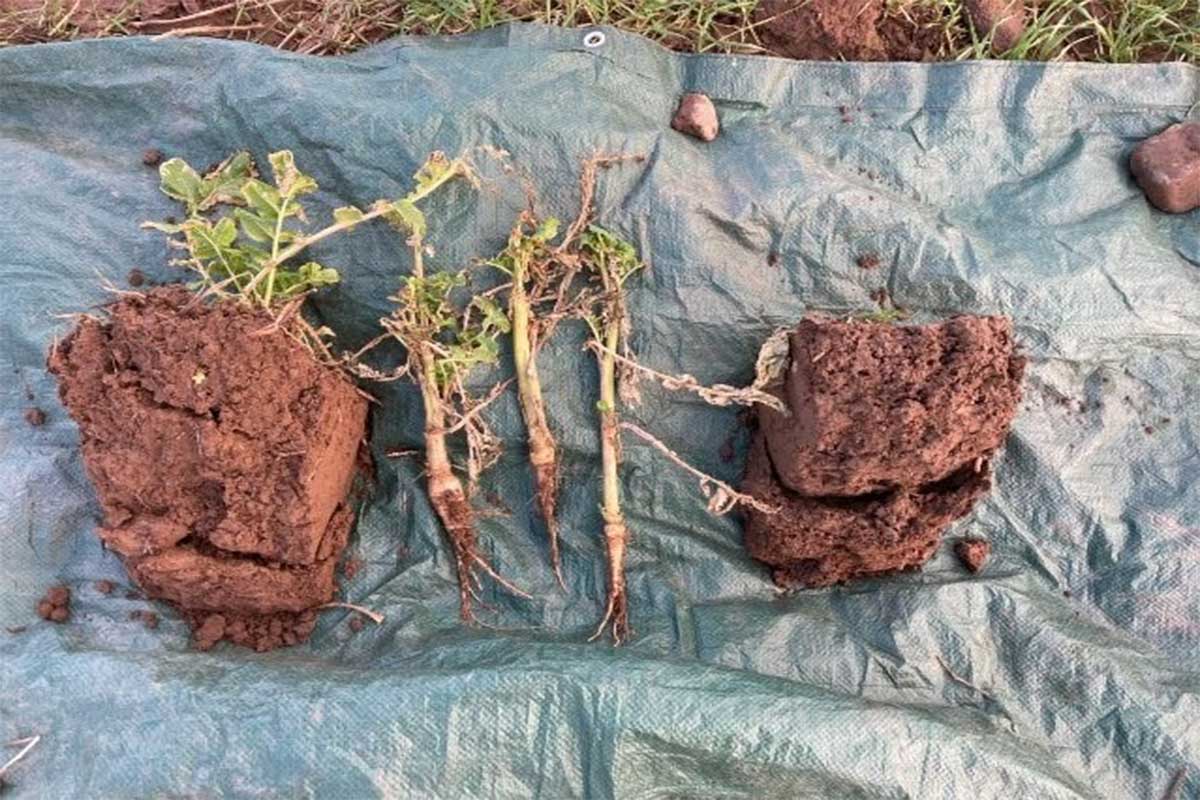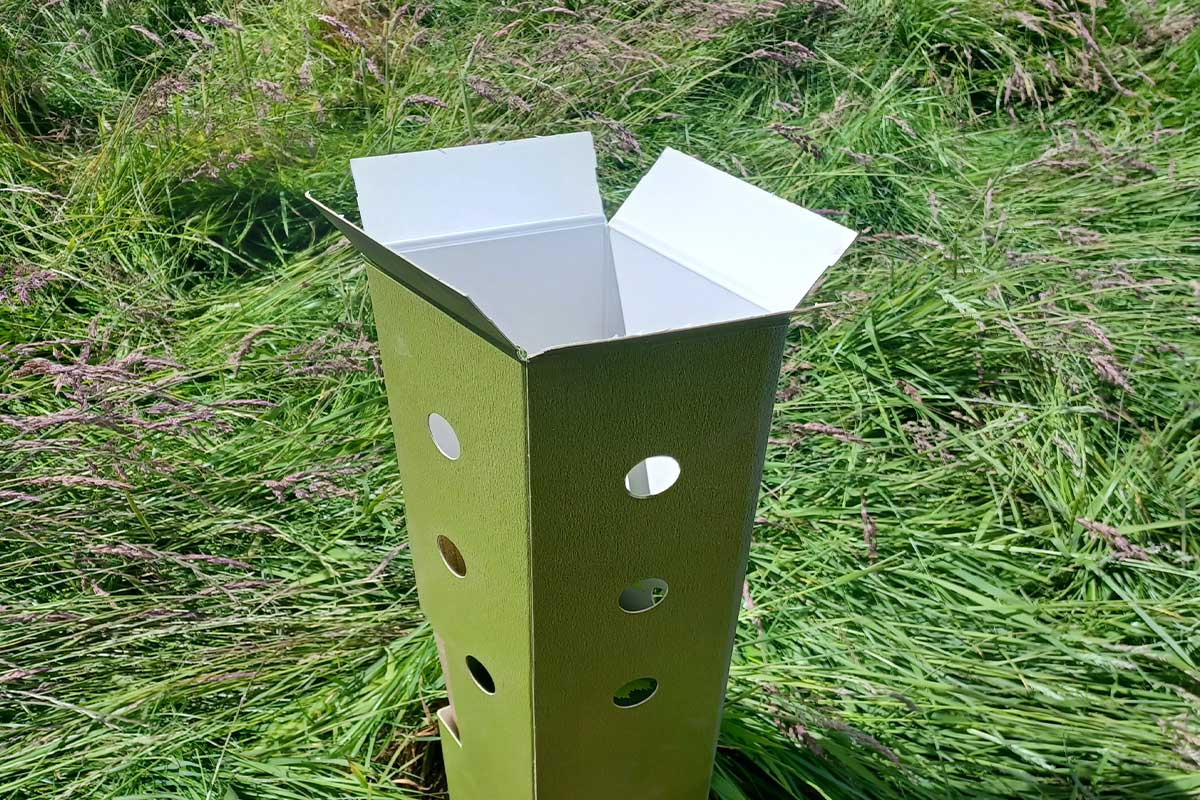
Tree guards are an effective means of establishing broadleaved trees, providing protection from browsing mammals (such as sheep, deer, rabbits, hare and voles) and enhancing tree growth.
To be effective, guards need to be robust enough to last as long as it takes for the tree to become established. Tree establishment is a critical period in the creation and management of woodland – it could be for only a few years, but on challenging sites may be well beyond five years. Tree guards vary by type, size and material. To date, most have been made from plastics made from petrochemicals which are not biodegradable and must be removed after use and recycled. Others use petrochemically-derived plastics but have additional materials that result in the tree shelter or guard breaking down into small pieces which cannot be recovered from the environment. When used in the riparian zone, plastic guards can be washed away by floodwater and pollute riverbanks downstream or end up at sea where they breakdown into microplastics.
More recent designs use plant-based sources, compressed paper, or cardboard, but issues have arisen over the longevity of these.*
Using deer fencing and vole guards an alternative to stock fencing and plastic tubes works well in appropriate situations. But along watercourses deer fencing can be expensive, poor value for money and may cause issues in riparian zones which are prone to flooding. Deer management is also not typically economical at smaller scales.
WADER is hoping to trial an innovative solution in the Tweed catchment – Trico, a new spray made from emulsified sheep’s fat, which, when applied to saplings discourages animals from browsing due to its unappealing smell and taste. A single spray can last up to 6 months, with typical management involving a spray twice a year for up to 3-5 years. Because of its natural based active ingredient, it has a reduced impact on the environment compared to alternative sprays. It could also be used when traditional methods of woodland establishment are difficult to apply practically (for example where there is a high risk of plastic tubes and fencing becoming washed away by flood water) or aren’t attractive to the landowner.
Trialling sheep’s fat to protect young trees
WADER is trialling Trico and other biodegradable tree guards (such as lanolin spray) on a 7ha area of riparian woodland at Horncliffe, on the south bank of the Tweed. If successful, the trial will act as a live demonstration site of best-practice to farmers and landowners, paving the way for successful adoption of riparian planting schemes.
*Source: Tree_shelters_guide.pdf (publishing.service.gov.uk)

